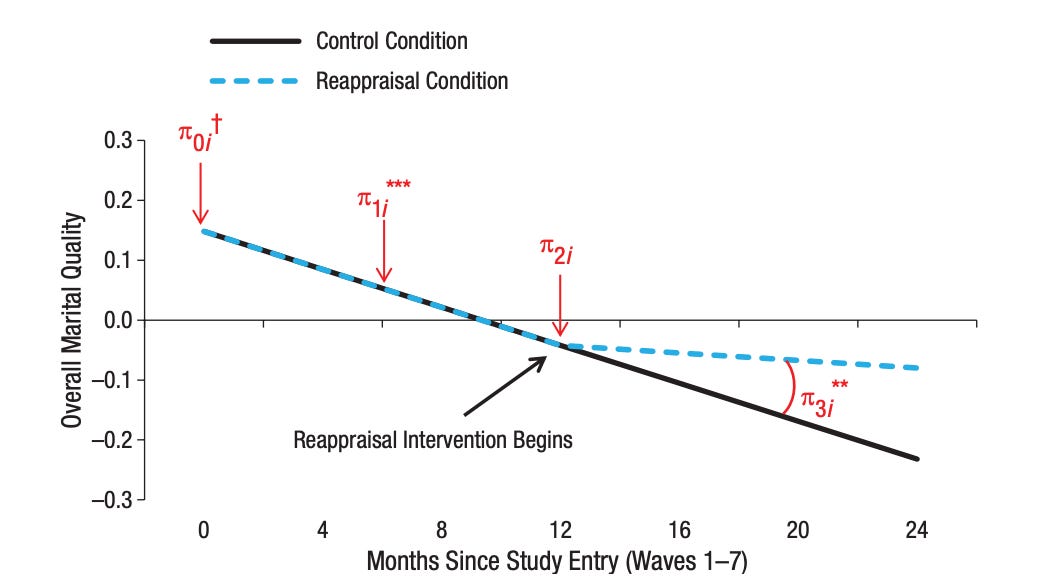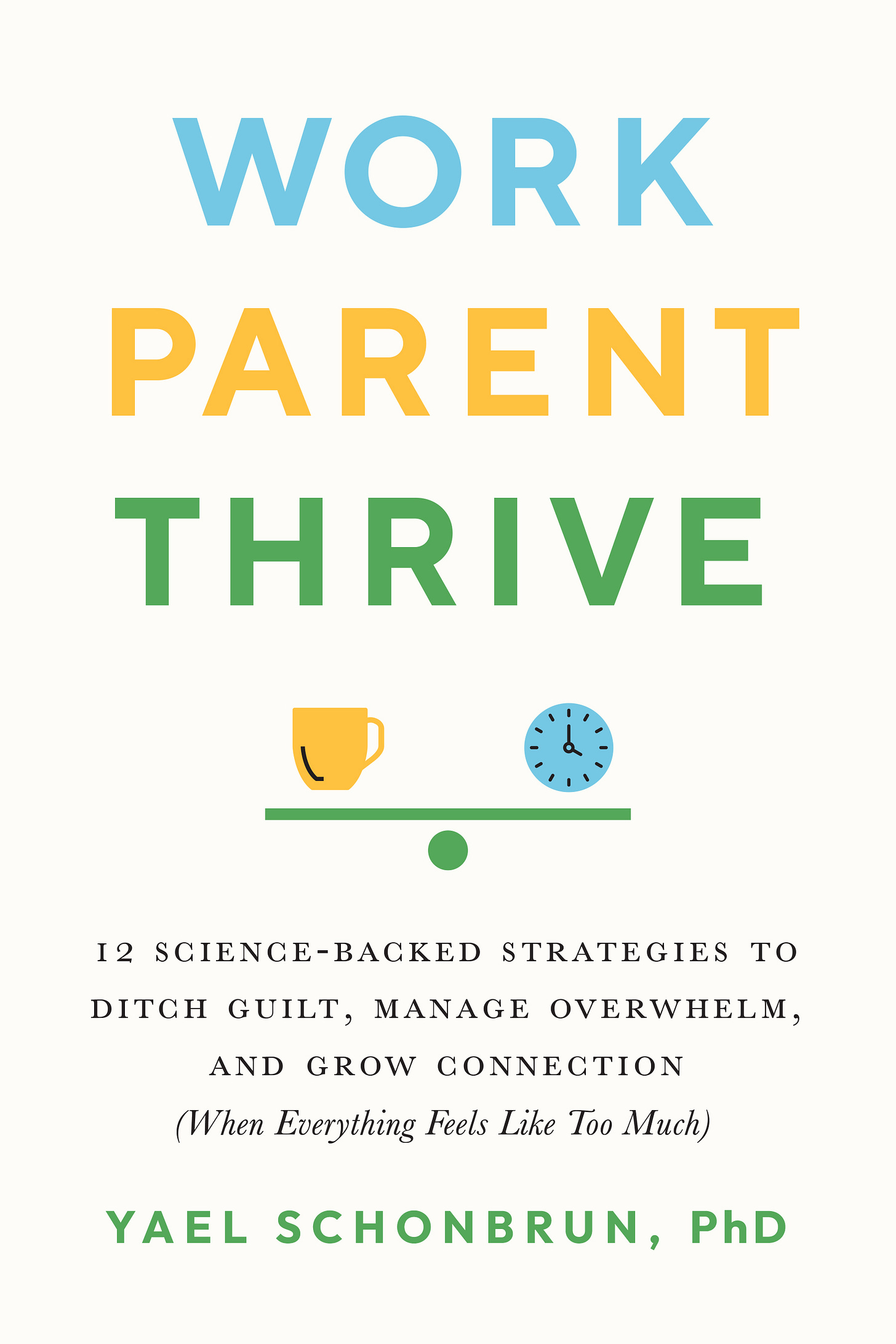A Powerful Practice for Navigating Disagreements
Plus, my favorite science-backed advice for managing holiday chaos
Worried about coming face to face with your least favorite people this holiday season? You’re not alone.
Throughout the holiday season, so much of the pressure confronting you involves social engagements you’d rather not have. There’s the obnoxious colleague who always traps you at the annual work holiday party, the friend who grows increasingly demanding (despite your decreased friend resources), and the grandparent who bought your kids a new video console even though you told them not to. Disagreements feel inevitable.

If your fuse is short, you have every reason to offer yourself tons of grace and self-compassion. But beyond self-compassion and grace, you also have options that doesn’t simply involve biting your tongue or letting others know what you really think of them (oh-so-tempting…).
Here’s where a strategy I regularly share in the therapy room comes in handy. It’s an exercise from a clever 2013 study useful for virtually any kind of relationship disagreement. I’ll share the nutshell version of the exercise here and describe the research in more detail below.
The Practice
I call this exercise, “What would someone who likes both you and your counterpart think?” (yes I know, both witty and pithy.)
Whether you’re heading into disagreement or deep inside it, here’s what you do:
Bring a neutral third-party person to mind. This is someone who sees the best in you and the best in your counterpart; someone who wants good things for both of you. It could be a kindly person you actually know (like a therapist or grandparent), someone whose wisdom you admire (like a spiritual leader), or even someone you fantasize about (a movie or book character, or your wise future self).
Ask yourself, “How would this person see the disagreement?” This neutral person sees good in both you and your counterpart and offers each of you benefit of the doubt. They can see the dynamic interplay from a neutral perspective that doesn’t demonize either of you.
Get curious about what kinds of good things your neutral, third-party person could see coming out of this conflict. The ideas from your third-party persona help you identify where you (and your counterpart) are getting stuck. They can also help you connect to how this disagreement might prompt growth for you as an individual, growth in your relationship, and even meaning-making from this difficult situation. They can see a positive path forward.
The Research Nitty Gritty
This 2013 study sought to investigate whether a brief intervention (like the one described above) could protect against marital decline. This intervention is based on a practice called “cognitive reappraisal,” meaning the re-interpretation of an emotionally charged person or situation. The researchers hypothesized that this kind of practice could protect marriages, over time, against the negative effects of disagreements.
To test this hypothesis, the research team recruited 120 couples and followed them for two years. The first year involved simply observing marital happiness over time in order to detect general trends (which, as predicted, went down over time). Then, one year into the study, the researchers delivered a 21-minute “reappraisal” intervention to a randomly selected half of the participants.
Participants in the intervention arm were given instructions similar to what I shared above—to think about a disagreement from “the perspective of a neutral third party who wants the best for all involved; a person who sees things from a neutral point of view.” Then the researchers asked participants to practice this in everyday relationship conflict. They explained, “Despite the obstacles in taking a third-party perspective, people can be successful in doing so. Over the next 4 months, please try your best to take this third-party perspective during interactions with your partner, especially during disagreements.”
As you can see in the figure below, the two groups had similar and declining slopes in the year leading up to this simple, 21-minute intervention. But the trajectories differed markedly after it. In fact, this simple one-time intervention was substantially protective in the year-long follow-up!
Incredible as it may seem, the practice of adopting a neutral, third-party perspective had a powerful protective effect on marital relationships. The more amazing news? It’s something we practice on our own and inside of virtually any kind of relationship.
Why Is This Practice So Impactful?
For most of us, feeling hurt, angry, disappointed, frustrated, disgusted (and so on) makes it hard to see things from any perspective but our own. It’s complicated, of course, because people sometimes do really and truly suck and no nuance should be introduced to explain that away. As Amanda Ripley writes in her book, High Conflict, “the brain behaves differently in charged interactions… In this hypervigilant state, we feel an involuntary need to defend our side and attack the other.” This kind of response is a beneficial one when we are under serious threat—we protect our immediate safety by rapidly assuming the worst about others.
But while this natural response protects us in situations of imminent threat, it’s far less beneficial in other situations. Seeing a badly behaved person as evil hides the fact that hurtful behavior often results from things like people being in pain, lacking relationship skills, being distracted or overwhelmed, or acting as a response to feeling hurt, themselves.
This simple “what would someone who likes you both think?” intervention moves us beyond our reflex to assume that someone who hurt us is an awful person. It opens us up to see, as Jack Kornfeld writes in The Wise Heart, that “no matter how strongly we believe our perspective, there are always other points of view.” It helps us to connect to our better selves inside of contentious situations.
This kind of exercise fits into a broader literature highlighting the helpfulness of the strategy of "self-distancing.” Self-distancing involves taking a step away from our own perspective and experience. It’s an approach that helps us see alternatives, even when we feel angry or hurt. It can even help young children see alternative ways of thinking (like this study, which had young children think about “what would Batman do?”).
By proactively distancing ourselves from our own thinking, feeling, and action impulses, we open up new, more helpful possibilities for managing disagreements.
Putting It Into Action
So, let’s sum up this research-backed approach to protecting ourselves inside of difficult relationships:
Think of a neutral third-party person or persona, someone who sees the good in you and your conflict counterpart.
Consider how this person might view the disagreement.
Reflect on what good things your neutral, third-party person might hope would result from this conflict.
Care to share a reappraisal of a holiday disagreement? Comment here to inspire others with new ways to think of old conflicts. I’ll start:
My kids aren’t spoiled, unhinged, or raging monsters—they’re just acting out because of the holiday chaos. (This is inspired by a recent newsletter post from Melinda Wenner Moyer)
And… My Favorite Science-Backed Tip for Managing Overwhelm
Here’s the tip: Subtract.

While drowning in obligations with the added pressure to be merry and bright, there seems no alternative but to do it all.
But we do have a choice. It’s just that your brain will struggle to see those options. This is what one of my favorite sets of studies shows, a finding perfectly captured by the title of their 2021 Nature paper: “People systematically overlook subtractive changes.”
In essence, this research shows that when given a choice of how to improve something, humans tend to overlook the subtractive option—even when it’s the superior choice. And according to one of the experiments in the larger study, the tendency to overlook the option to subtract grows even stronger when we are overwhelmed. In everyday terms, that means that the more overwhelmed you feel, the less likely you are to embrace the wisdom of taking something off your plate.
You can check out more about these study findings, and practices to overcome this systematic neglect, in this piece. You can also check out this terrific book, Subtract, or my book, Work, Parent, Thrive which has an entire chapter dedicated to how working parents can (and should!) remember to subtract.
I challenge you to consider subtractions like holiday parties, holiday cards, homemade cooking, or buying gifts for each niece and nephew. It may not be obvious (or socially condoned), but most of the time the holiday things we feel we “need” to do aren’t life-or-death.
So this holiday season, remember to subtract.
Before I sign off, I’ll share that, in my humble (and self-serving) opinion, books make the best holiday gifts. In each of my newsletters, I recommend books that are both fun to read and which have transformed my thinking and living. And in one of my recent newsletters, my kids offered their favorite family-friendly audiobook listens, all of which are great gifts in physical version, too. (As discussed last week, you can amplify the relational benefits of this gift by emphasizing the experience of reading!)
Go Deeper With Me!
If you enjoy the kind of relational science I explore in this newsletter:
Pick up a copy of my book, Work, Parent, Thrive. In it, I explore the relationship between roles, parents and children, and partners, and the science guiding us in how to thrive in a life full of demanding roles. (Email me if you’d like to be sent a free copy of the first chapter)
Follow me on Instagram, where I attempt to regularly share science-backed ideas for relational thriving: @yaelschonbrun
I spend much of my professional time thinking about how science and clinical practice can foster relational thriving, including relationships between parents and children. A newsletter isn’t therapy, but it can be therapeutic. Send me your parenting or marital questions if you’d like to read about how social science and clinical practice can help you navigate specific relationship challenges more skillfully.
Relationally yours,
Yael





We subtracted holiday cards this year. The first time in I don’t know when and it feels good.